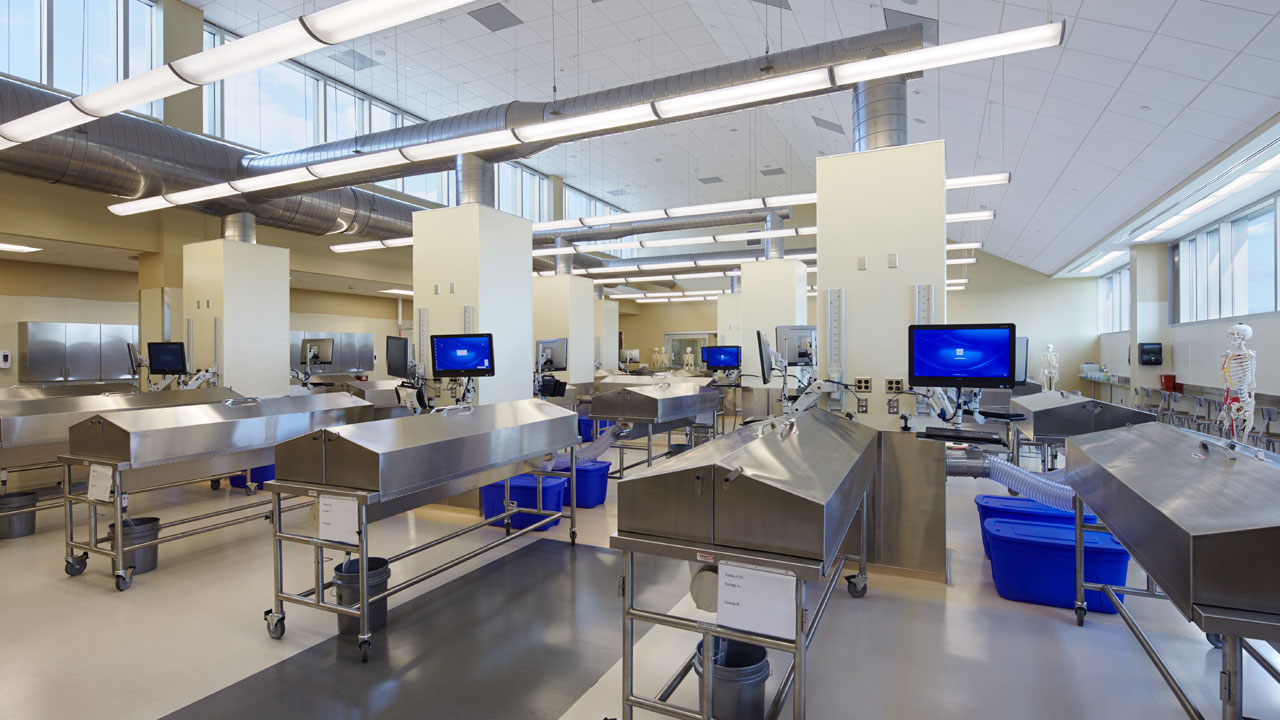Dearest Donor,
I looked forward to meeting you for years, filled with a mixture of anticipation, excitement, and apprehension. Having taken undergrad anatomy & physiology online, I had never before set foot in an anatomy lab, and didn’t know what to expect. However, mmy lifelong fascination with the human body, coupled with my okay-ness with what many others find macabre or gruesome, led me to believe that I would enjoy the experience. I just couldn’t wait! The summer before medical school, I read the book Stiff: The Curious Lives of Human Cadavers by Mary Roach, reveling in the history of physicians (and would-be physicians) learning from decedents. The night before our first meeting, I scoured Reddit and other forums, looking for ways to prepare myself. I read the stories of dozens of medical students, running the gamut from hating every minute of anatomy block to absolutely loving it, tales of the indescribable odor and effects of working in a cloud of formaldehyde, and I understood that nothing could really prepare me. This experience would be my very own. (Not to mention the fact that I am likely one of few 1st-year medical students who also had to look up whether the formaldehyde exposure would be safe for my breastfed baby!).
The day of our introduction, dear donor, served to reinforce my love for my medical school, as respect for your body and gift were reiterated, along with a concern for our interaction as students. I remembered back to my interview day when we were pointedly told that our tour would not include a view of the anatomy lab, out of respect for those who rested there. This contrasted with other schools which casually paraded interviewers in and out of the lab—not necessarily with disrespect, but certainly not with the air of reverence exhibited by U of A. We ceremoniously gathered around the table at which we were to spend almost 100 hours in the future. We viewed your body and were encouraged to acknowledge and reflect upon any feelings that arose. I was instantly consumed by a sense of gratitude for your gift and curiosity about your life, something that would persist throughout the entirety of the anatomy block. I was already impressed by the use of the term “donor” to convey more respect, but then I understood that it more accurately describes the fact that your body is such a priceless gift to us, students.
On the first day of anatomy class, I eagerly began learning to dissect, not losing heart over the accidental severance of an important nerve, and thrilling with the fact that I ended the morning holding a lung in my hands. Such surreal and intimate interactions with the human body have continued to excite me, with each anatomy day feeling a little bit like Christmas morning. Exploring the layers and structures of your body at times filled me with wonder at the intricacies and complexities of the mechanisms of life; at other times, it grounded me to consider the carnality of our human shells. I found myself engaging in mental exercises which chipped away at my solipsistic tendencies. This hand that I was cutting into and studying once performed the same tasks as my own hand. This heart once skipped beats when seeing a loved one across the room. This womb perhaps carried children. These feet danced at weddings. I have inevitably been confronted by my own mortality, causing me to savor my life even more and to deeply reflect upon my legacy.
Dear donor, you have given an incredible gift and created a lasting endowment by ceding your body to science. Six future physicians have deepened their knowledge of anatomy and will carry this knowledge for the rest of their lives. Innumerable patients will be touched by those of us who learned from your body; lives will be saved and the health of entire communities will be improved. You will always be my very first patient. I thank you from the bottom of my heart and promise to honor your gift throughout the rest of my life in medicine.
Sincerely,
Jessica
Jessica Pirkle is a member of the Class of 2022 at the University of Arizona College of Medicine-Phoenix. She completed a BA in Spanish at ASU and worked for several years as a school teacher before switching gears and obtaining an MS in Health Care, also at ASU. When not studying the marvels of medicine, she enjoys making and eating delicious healthy food with her four children, and daydreaming about being a music festival groupie.

